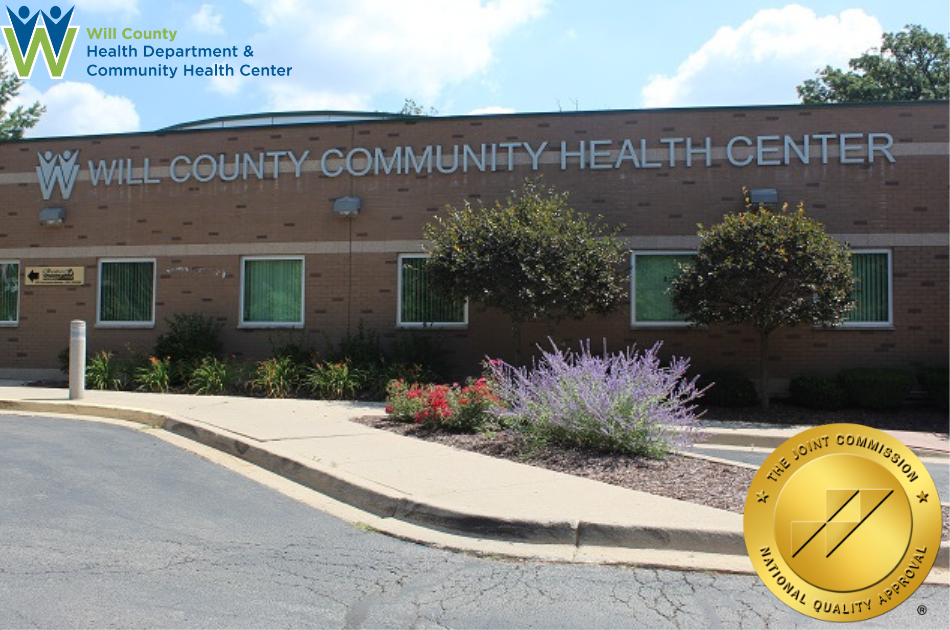WCHD Reminds Residents to Prevent Foodborne Illnesses
WILL COUNTY HEALTH DEPARTMENT

With the summer season in full swing and weekend and holiday cookouts becoming a regular occurrence, the Will County Health Department is reminding everyone of basic food safety tips they should follow in order to reduce the chance of getting a foodborne illness.
“If you’re hosting a cookout, it’s important to remember to keep cold food cold and hot food needs to be cooked to the proper temperature to prevent foodborne illnesses,” said Sean Conners, Director of Environmental Health at the Will County Heald Department. “Foodborne illnesses tend to rise during the summer season so we’re reminding everyone on how they can stay safe while enjoying their cookouts and gatherings.”
Keeping Food Cold
It can be difficult to keep cold food cold during the weather, especially at cookouts. When transporting food, keep foods 40°F or below in an insulated cooler. One tip to keep your cooler below 40°F is to pack beverages in one cooler and food in another. The cooler with the beverages will likely be opened more frequently, causing the temperature inside the cooler to fluctuate. You can also keep coolers in the shade and out of the direct sun. Meat, poultry and seafood should be kept refrigerated until ready to grill.
To guard against cross-contamination, food should be kept separate. Raw meat and poultry should be separate from fruits, vegetables, cheeses, salads, and even cooked foods.
Firing up the Grill
Before grilling, thaw food safely in the refrigerator, cold water or microwave. Always marinate food in the refrigerator, no matter what kind of marinade you’re using. Never thaw or marinate meat, poultry, or seafood on the counter. Harmful germs can multiply very quickly at room temperature.
When grilling, make sure food is cooked to a safe temperature by using a food thermometer. Follow these temperature guidelines to ensure grilled food is safe for consumption:
- 145°F – whole cuts of beef, pork, lamb, and veal
- 145°F – fish
- 160°F – hamburgers and other ground beef
- 165°F – all poultry and pre-cooked meats, like hot dogs
Throw out marinades and sauces that have touched raw meat juices, which can spread germs to cooked foods. Use clean utensils and a clean plate when you take cooked food off the grill.
After the Meal
After the meal, divide leftovers into small portions and place in covered, shallow containers. Make sure all leftovers are kept in the freezer or fridge or on ice within two hours after cooking, or one hour if the temperature is above 90°F.
Foodborne Illnesses Foodborne illnesses tend to spike during the summer months. It’s important to know the symptoms of most types of food poisoning, which include severe cramps, fever, abdominal pain, nausea, vomiting and bloody diarrhea. Symptoms can begin from 30 minutes to three or more days after eating contaminated food. If symptoms are severe or last longer than two days, contact a doctor or health care provider.
More food safety tips and information about foodborne illnesses and symptoms can be found on the CDC Food Safety website at: www.cdc.gov/foodsafety/index.html
If residents believe they contracted a foodborne illness from a restaurant, they should fill out a complaint with the Will County Health Department’s Environmental Health Division. A complain can be filed online at: willcountyhealth.org/eh-complaint/. The Environmental Health Division may also be reached at 815-727-8490.
Will County Community Health Center’s Mission
The Will County Community Health Center’s mission is to improve the health of the residents of Will County by providing access to quality integrated medical, behavioral health, and dental care through community collaboration, service and education. The Community Health Center offers a long list of services including adult, pediatric, adolescent and women’s healthcare, dental care, behavioral health services, eye care services, family planning services, a teen clinic and insurance enrollment assistance.
